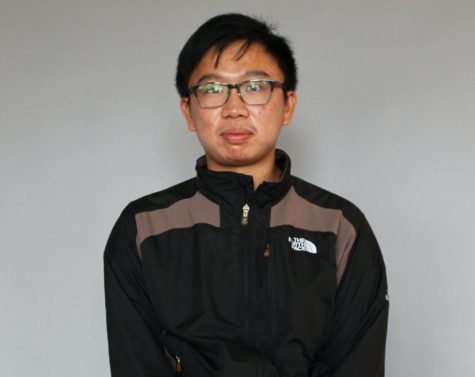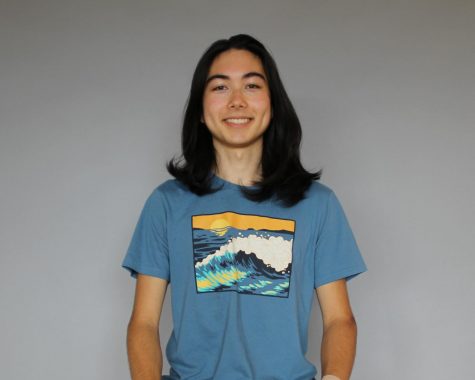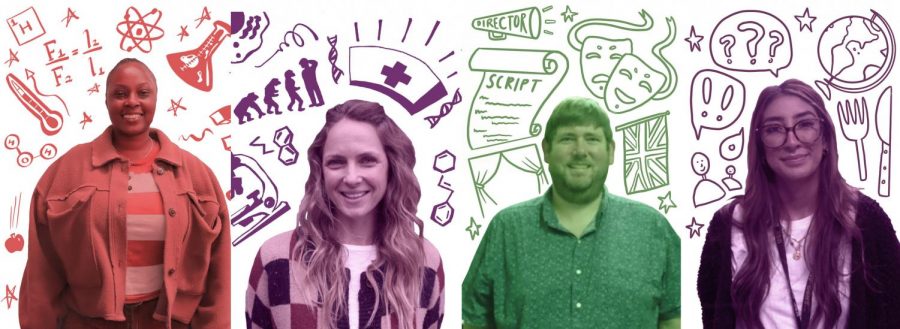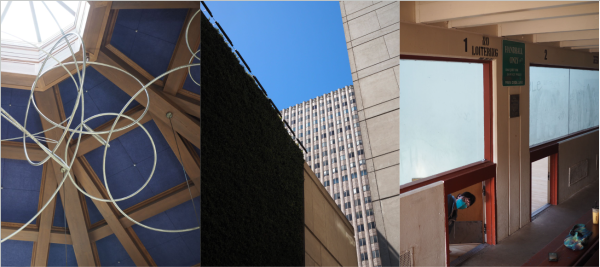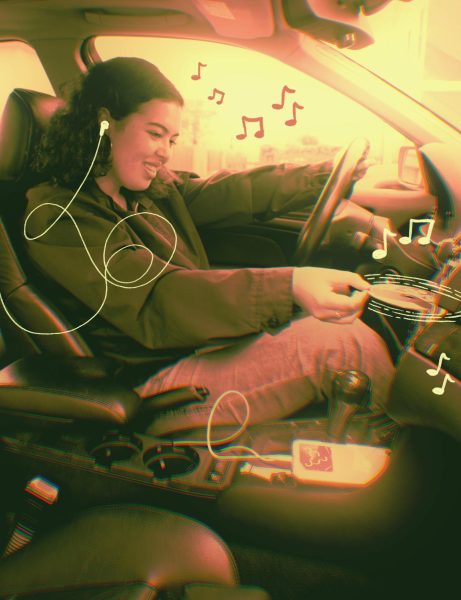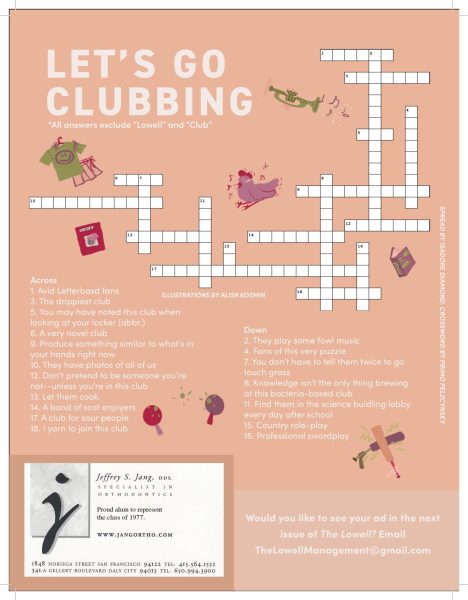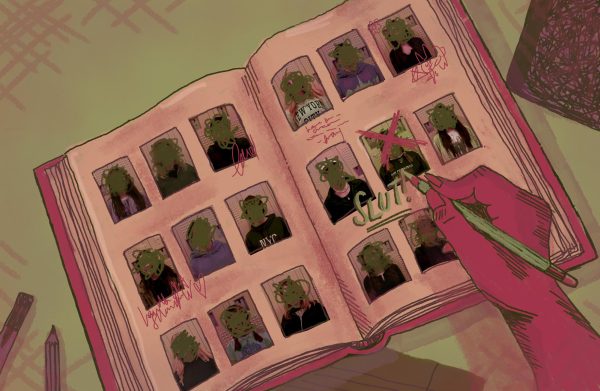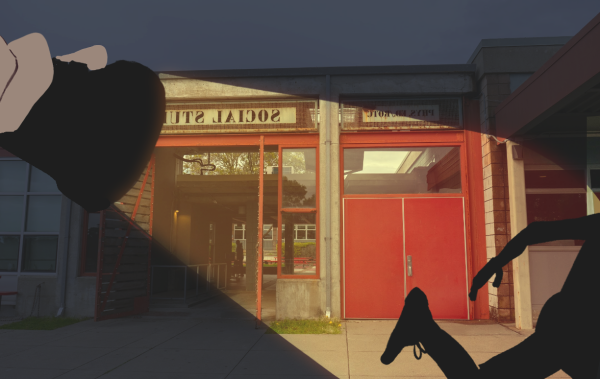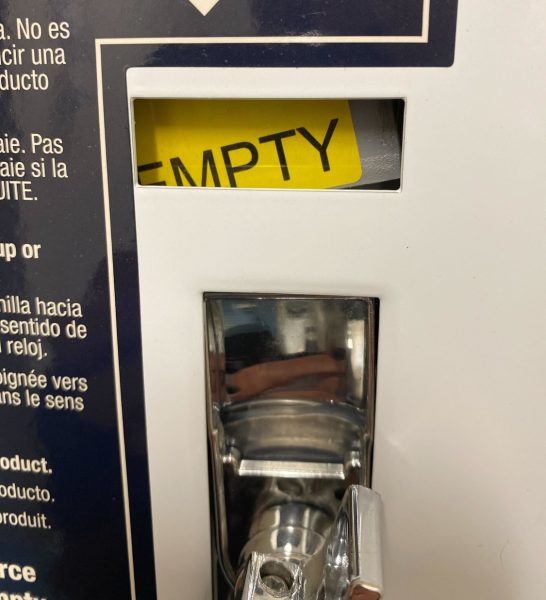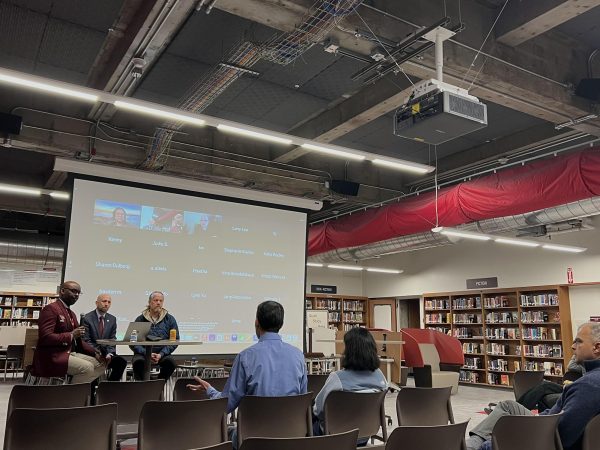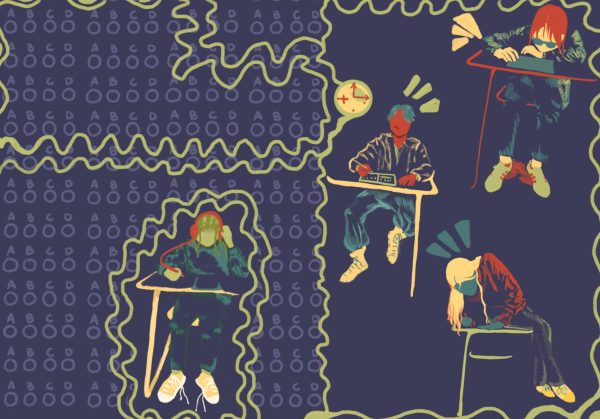New year, new staff: Meet your new teachers, part 1
Brandy Williams, chemistry and physics teacher
By Brandon Ng
A native of Chino Hills in San Bernardino County, Brandy Williams obtained a degree in Kinesiology and African American Studies from Cal State Fullerton in 2013. However, it wasn’t until Williams was pursuing post-bachelor work at various community colleges and universities that she discovered her interest in chemistry and physics. After substituting at schools in Southern California for a few years, Williams moved to the Bay Area in 2018. Before coming to Lowell, Williams had previously taught at three other Bay Area high schools. In her free time, Williams enjoys yoga and hiking.
What inspired you to become a teacher?
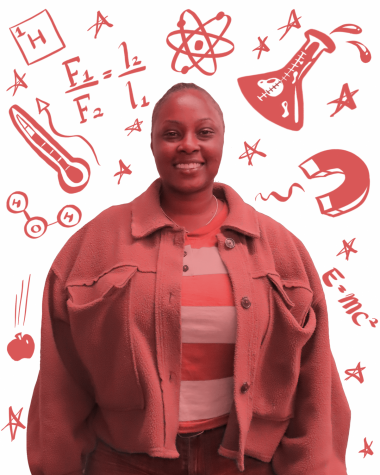
When I was doing my post-bachelor work and I was taking all these science classes, I got into tutoring. I was inspired to get into tutoring by some of my chemistry professors who were really excellent, and from there I stayed in teaching as a job and a career.
How would you describe your teaching style?
I would say that I’m a little bit go with the flow. I have an idea of what it is that I’m planning on teaching for the day, and I do match with the content, but also my style is I’m going at the speed the students need. So I believe in trying to pace myself and doing what’s for the best of the kids.
What are some rewards and challenges of teaching?
I have a challenge and a reward in one actually. I would say a challenge is definitely answering all these wonderful questions that my students have that are very detailed and inquisitive questions which is also a beautiful thing because it allows for me to get better at my practice and also have me think of what the students need best. The beautiful thing is this learning between each other that we’re able to do in physics and chemistry classroom.
What is your impression of Lowell so far?
I really like it. I think it’s a very academically competitive space, and I think that’s cool. I think the teachers are very helpful and very informative. I think the administration is as supportive as it can be. I think the students are just amazing. I think they are very emotionally intelligent, they are very driven, and want to know as much as they can. I’m very comfortable here. I like to get up and come to work and I think that’s a very good sign.
Lindsay Sandzik-Robinson, biology teacher
By Issac Fukumura-White
Lindsay Sandzik-Robinson was born in Detroit, Michigan, where she attended L’Anse Creuse High School. After graduating, Sandzik-Robinson attended University of Michigan, where she got a B.S. in psychology and biology, as well as Loyola Marymount University where she got a M.S. in Secondary Science Education. Though Sandzik-Robinson first decided to take up teaching as a 2-3 year experiment, she ended up “falling in love with it,” and she is now 15 years into her teaching career.
What inspired you to become a teacher?
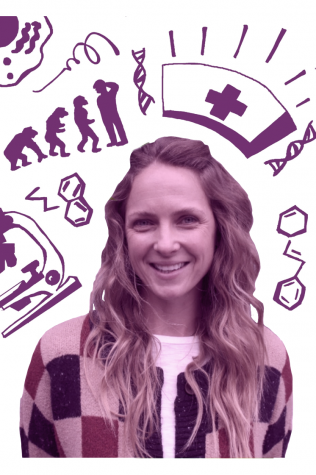
It was not my plan at first. My transition from high school to college was kind of rocky. I graduated top of my class in high school. But when I got to college wanting to be a premed student, my first class really shook me. There, I found out that I hadn’t really learned how to appropriately study in high school, I had been more of a grade seeker. After a lot of hard work in college — finishing taking my MCAT and getting my grades where I wanted them to be, I realized I knew how to study, and I thought it would be a good idea to pay that skill forward. So I started teaching, thinking that it would be a 2-3 year commitment, but I ended up falling in love with it, so even though I took the MCAT, here I am, 15 years in.
What are you most excited about going into your first year at Lowell?
Well, I love teaching biology, it’s what I decided to study in college. Thinking about Lowell and why I was drawn here, I would say that it is a prestigious fixture of SF public schools. But it’s also changing, and I look forward to seeing how we maintain our rigor with a greater lens of equity and inclusion. I want to be part of that while also focusing on the maintenance of that rigor going forward.
What is the impression you’ve gotten from teaching at a large school like Lowell for the first time?
I was slightly intimidated when I took the job here, because it’s huge, and it’s different from any school that I’ve taught at before. I definitely love the feeling of hope I get from seeing students in action. One of the things that keep me awake at night is the shifting climate and everything that comes from that — the floods, the fires, the refugees, the environmental injustice. I find comfort watching students at Lowell in action because it makes me feel that there is purpose, and that sense of purpose is what is going to mitigate those problems and hopefully provide some solutions.
What would you say is the biggest challenge you’ve faced and biggest reward you’ve received as a teacher?
I’d say my biggest challenge has been knowing when to stop, because there is always more that you can do to support students, there is always more engaging curriculum to uncover. I have my own children at home now, so another challenge for me has been keeping the work/life balance — making sure that I know when to turn off, and just taking care of my family and my own health. My biggest reward is definitely the ripple effect. I never thought that I’d have that much impact outside of my own classroom, but I had a student who actually reached out to me about a month ago who I taught in middle school, and she’s now a PhD student at UC Berkeley studying molecular and cellular biology. She wrote to tell me that she was super excited about my biology curriculum in middle school. To get a letter that kind of reminded me that the impact I’ve had on students is the best reward.
Timothy Sullivan, drama teacher
By Brandon Ng
Timothy Sullivan discovered a life-long love for theater at age six when he auditioned for a community theater play in his native Boston. After obtaining a degree in theater from the University of Southern California (USC), Sullivan went on to study for a year at the British-American Drama Academy in London. While in London, Sullivan directed a theater company for seven years before moving back to the United States in 2014. After transitioning to a corporate role for a few years and finding it unfulfilling, Sullivan pursued a career in teaching theater instead.
Why did theater appeal to you when you were young?

I was one of four children so I liked being in the spotlight. Theater certainly gave me that opportunity to shine, but I liked telling stories. I come from a family of storytellers, and that’s what we try to do. As a theater artist, you tell a story — figure out what it means to be human. That’s what we’re doing every day. We’re learning new perspectives, we’re seeing the world from all different perspectives and viewpoints and I think that really appeals to me, whether that’s a fantasy world or just seeing our own world from somebody else’s shoes. I find that very interesting.
What inspired you to become a teacher?
After I graduated from USC and moved to London, I ran a theater company. I needed to pay the bills, which happens when you choose theater as a career, so I got more of a corporate role there and slowly, but surely, the corporate world took over and I wasn’t doing theater as much anymore. When I moved back to the States, I was managing 120 people and had a very busy job that I just couldn’t find fulfilling. I missed theater and wanted that to be part of my everyday life. As the thing I loved most about my job was hiring new people and training them, I thought that made a natural segway over to teaching.
What are some of the rewards and challenges of being a teacher?
I think some of the challenges, especially being a new teacher, are how do you get these lessons [about things] that you know how to do and how do you instill that in somebody else? How do you structure it in the right way and how do you make sure people are learning and getting what you are doing? I think it takes some time and some practice. The rewards are just non-stop. I love when somebody gets something. Or those first few days of class, when everyone was just incredibly nervous and no one wanted to perform and do anything. People didn’t want to stand in a circle and didn’t want to get picked on for anything. Even in just a few week’s time, the people that were the most reluctant to do something are now the ones up and performing and giving it their all. That is hugely rewarding to see.
What type of shows would you like to produce at Lowell?
I certainly want to diversify the productions that we’ve been doing. The theater is no different from any other media in that there is a prevalence of dead white guys. Can we be doing shows that are by writers of color, by female writers? The shows should relate to our community at Lowell. The cast should represent the community at Lowell.
Carolina Samayoa, ethnic studies and AVID teacher
By Brooke Laur
Carolina Samayoa grew up in a small town near Los Angeles called Downey. Growing up, Samayoa knew that she wanted to help people who had a hard time navigating language barriers and cultural differences because she moved to the United States as a young child not knowing any English. In college, she set out with a goal to make students feel like they belong in their classrooms. With a ‘’laid-back’’ teaching style, Ms. Samayoa is looking forward to building community within her Ethnic Studies and AVID classes, and extending this towards the rest of Lowell. .
What inspired you to become a teacher?
Growing up as a person of color who moved here not knowing a lick of English, I found it really hard to navigate the space. I knew that as I kept going through school I wanted to create those spaces for kids that looked and talked and did things like me. So when I went to college, I was like, This is what I’m going to do, I’m gonna make sure there’s spaces for people to feel like they belong in school and that they’re worthy of learning and flourishing and growing in school.
What’s your impression of Lowell so far?
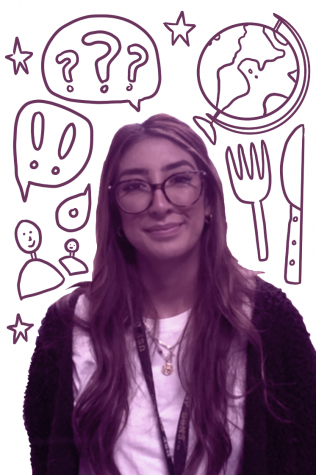
I teach Ethnic Studies so it might be a little bit different, but my impression of my students in Ethnic Studies is that they’re really excited to learn and really engage with everything I provide, and we have really honest and vulnerable conversations, so I’m really impressed with everyone. And it’s huge! I also get told I look like a student all the time, and a lot of other teachers confuse me as a student, so I’m like, Nope, nope, I’m a teacher!
What do you like to do outside of school?
Honestly right now, nothing. I love sleeping, [teaching] is really exhausting — I tell my students this all the time but I go home and nap. I do like a pre-nap or a pre-sleep to my actual sleep, because I’m always so exhausted, so napping has become my main hobby. But, I love going out with my roommates in the city and trying out new places to eat. We love exploring new places in the city because we just moved here recently too, so I love hanging out with them.
How would you describe your teaching style?
Very laid back. It’s very student-centered and student-led. I don’t like lecturing. I don’t lecture in my class. We very much focus on ourselves, and so I love having conversations and lots of community in my class. I love the couches. I love having this flexible space. So yeah, definitely student-centered and focused on my student’s experiences.
If you could tell readers one thing about yourself, what would it be?
That where I am is always a safe and welcoming space and that they can come to me with anything.There’s nothing that will scare me away because I really genuinely care for all of them and so with anything they can come to me. Because it’s more than a job to me right now, it’s my little life — it’s my little community — and I hope to build community here at Lowell.
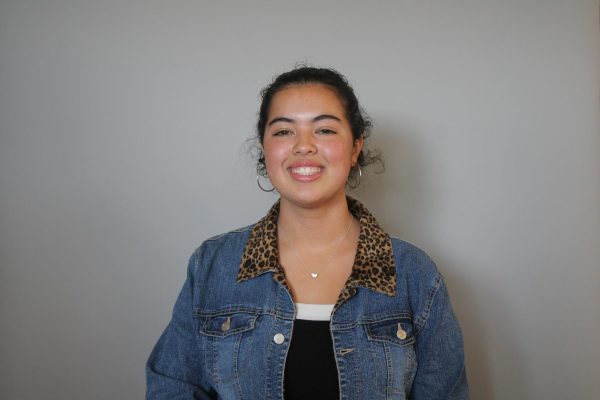
Brooke is a senior at Lowell. Outside of school, she can be found getting burritos with her friends, listening to podcasts, and daydreaming on the bus. Brooke's motto in life is ''do it for the bit''.
